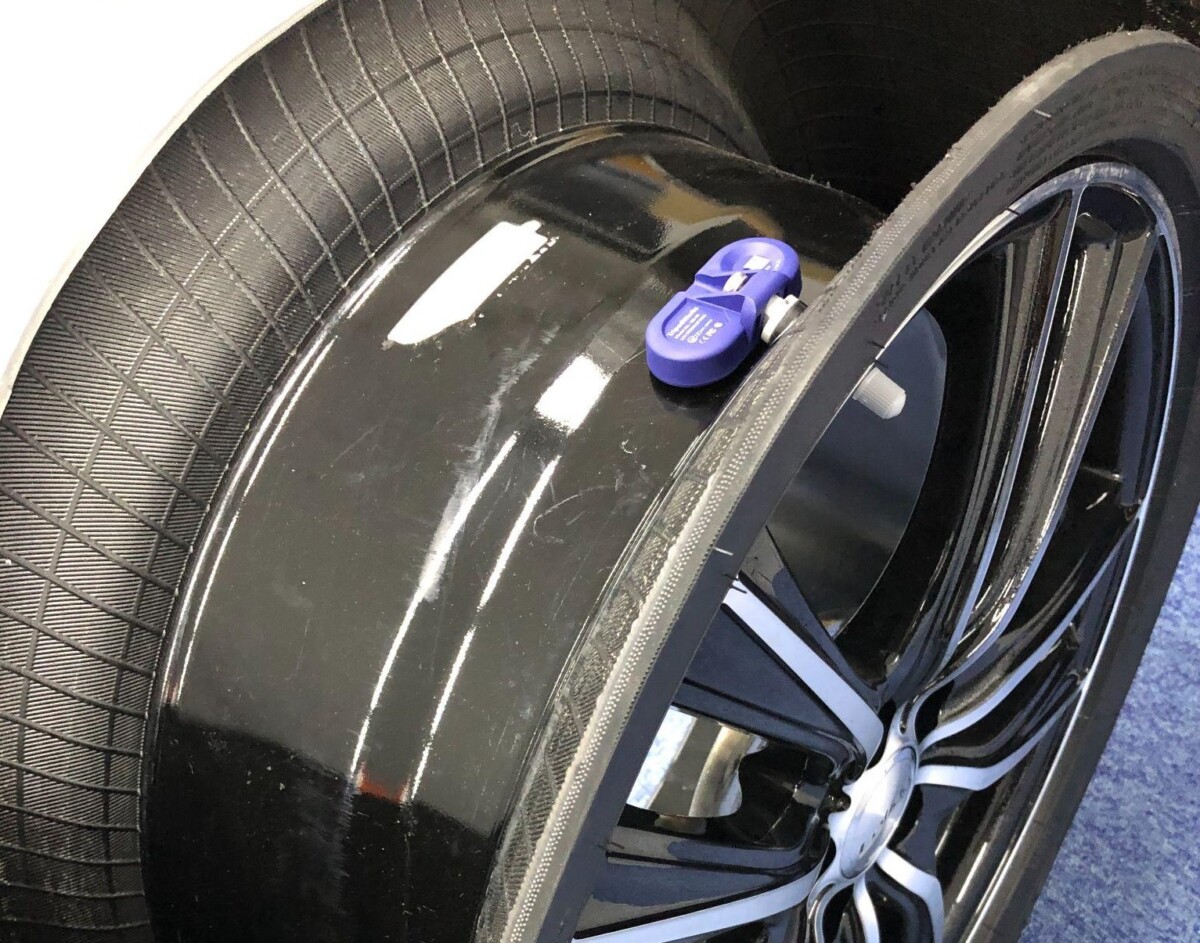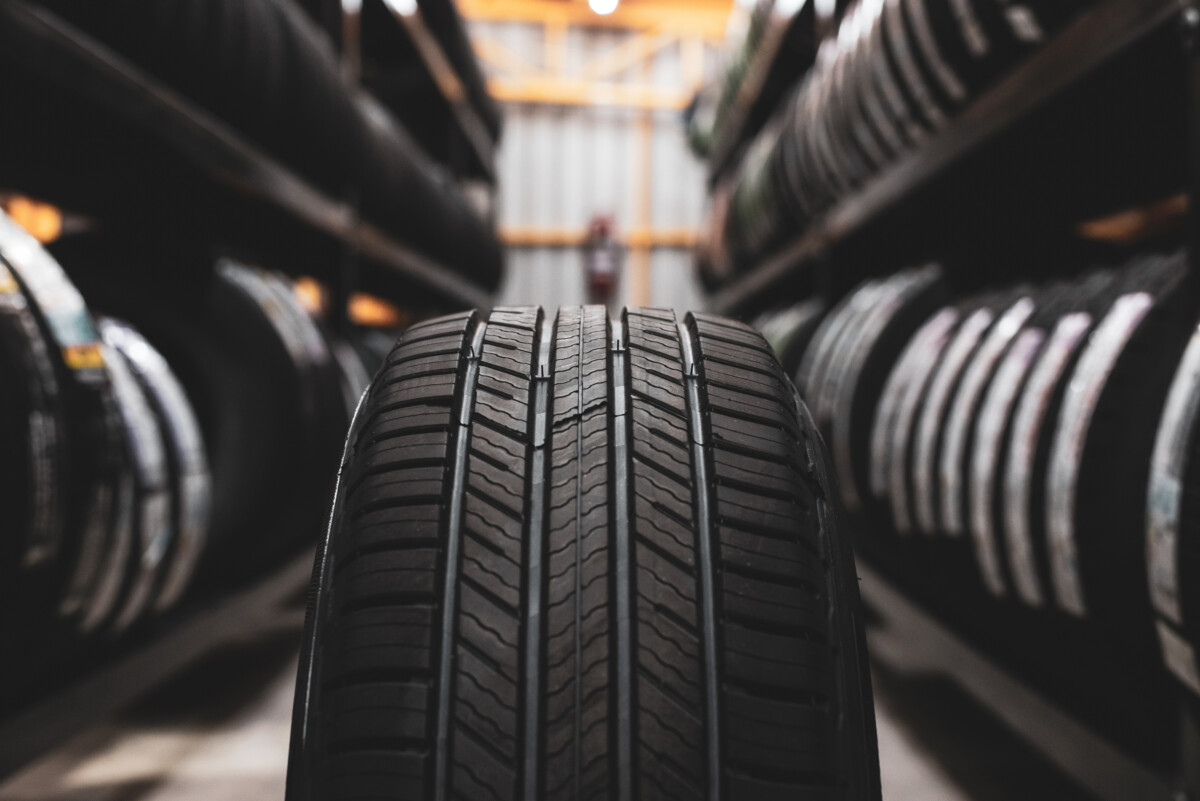Sumitomo Rubber Industries
Monitoring Tire Pressure to Optimize Vehicle Performance
The Opportunity
Under-inflated Tires Create Unsafe and Inefficient Vehicles
The automotive industry is in the midst of a remarkable evolution, driven by technologies such as new mobility, Mobility-as-a-Service, autonomous vehicles, and more. The goal of most of these innovations is to make driving, be it commercial or recreational, simpler and safer.
To this end, Sumitomo Rubber Industries, a global manufacturer of rubber products best known for its performance tire brands Dunlop and Falken, is tackling one of the biggest challenges to drivers – under-inflated tires.
Low tire pressure causes cars to lose fuel efficiency and can affect overall vehicle performance. The greatest risk occurs as the tire’s sidewalls flex more, allowing heat to build up within. With enough heat, the tire’s rubber can separate from the carcass, and the risk of a blowout increases exponentially.
Considering that about 28 percent of vehicles operate with at least one underinflated tire, a technical solution to remotely monitor tire integrity became a priority for Sumitomo. Not only would this streamline any vehicle inspection processes for operators of vehicle fleets, freeing up considerable time in a maintenance manager’s schedule, but it could also help improve runtime and driver safety.

Sumitomo Rubber Industries“I would like to use data to further improve our on-site capabilities.”
The Solution
Remote Monitoring Systems Help Simplify Vehicle Maintenance
To this end, Sumitomo introduced the Tire Pressure Monitoring System (TPMS), an IoT device that, when installed in a vehicle, can track factors such as a tire’s air pressure and temperature, as well as the location of the car or truck. That data is then measured and transmitted to the cloud via an in-vehicle communication system, where it can be reviewed and monitored in real time on PCs, tablets, and smartphones.
In addition to improved safety, initial public testing among commercial vehicle- and rental fleets found that the larger Tire Pressure and Temperature Management System significantly reduced the time maintenance personnel spent manually checking the tires, allowing the process to be handled remotely instead of at garage stops.
“The service utilizing sensors and cloud computing is a new concept for our customers,” said Mr. Teramoto, one of the project’s engineers. “Through the testing process, we were able to outline how maintenance teams’ workload had been reduced through concrete numerical values. At times, we discovered values that we had not anticipated in advance.”
Why Soracom?
Industry Expertise Meets Technical Knowledge
The Sumitomo team had little experience in utilizing data from the cloud or telecommunications, so they sought out partners that could help them fill the gaps in their expertise.
After evaluating many potential partners, Sumitomo chose Soracom as its connectivity provider. In Soracom, the company found not only consistent and reliable connectivity but advanced data security as well. In addition to providing in-vehicle communication via Soracom Air, the company protects user data through a private connection provided by Soracom Canal.
The TPMS is built on the AWS cloud, and Canal is a specialized service that creates a private connection directly between the “Sumitomo Rubber Cloud” and the Soracom platform. The service takes advantage of AWS secure routing options to keep data from the public internet, even allowing Sumitomo to control which devices can access their virtual private cloud connected by Canal.
This added layer of security provides Sumitomo’s clientele with peace of mind and ensures that data from vehicle fleets only goes where it’s meant to.

The Outcome
Using Data to Make Vehicle Fleets More Efficient
The data cultivated from tests involving leased vehicles, as well as a fleet of Budget rental cars, has created numerous insights. Chief among them is an algorithm that is able to detect slow leaks and small punctures that can easily be missed by visual inspections through analysis of tire pressure and temperature.
This has allowed TPMS users to maximize the lifespan of their vehicles’ tires and salespeople to create an enduring relationship with customers who may need replacement tires down the road. In addition, manufacturers can fine-tune their tires’ construction based on observed performance data.
Best of all, the relatively low cost of the system places these insights within reach of even modestly-sized organizations.
“Even though they may not have the speed of a venture company, companies with a large enough fleet can gather their own data and use it to improve their operations,” said Teramoto. “I would like to use the data to further improve our on-site capabilities.”
The TPMS is a part of the company’s Smart Tire initiative, which aims to place Dunlop and Falken tires at the forefront of major innovations that are transforming the automotive industry. The company hopes the system will help play a role in the continued growth of automotive technologies, including connected, autonomous, shared, and electric vehicles.
